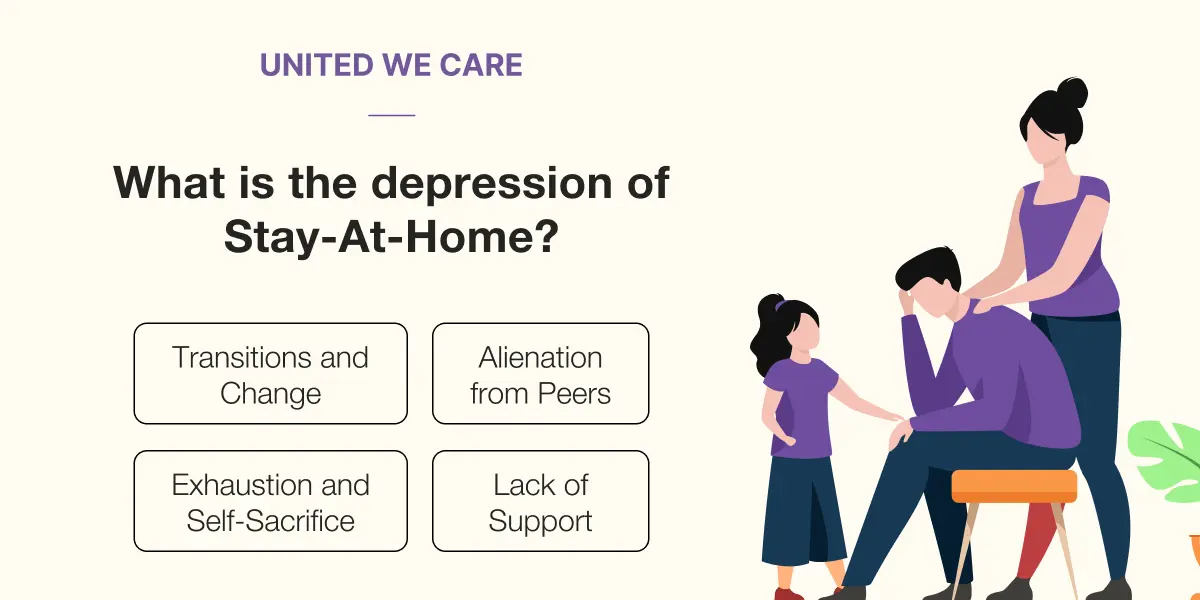Introduction
Being a stay-at-home dad is a relatively new concept. Over the last twenty to thirty years, there have been significant changes to the parenting experience. As women progress further in the workforce, people are starting to share child-rearing responsibilities between both parents. Consequently, the concept of being a stay-at-home dad is now a thing.
However, being a stay-at-home dad isn’t the same as being a stay-at-home mom. There are a couple of gendered nuances that make the process a little more complicated. Moreover, since very few fathers opt for this lifestyle, it can be a little alienating.
In this article, we’ll uncover the hidden truth of being a stay-at-home dad.
What is a Stay-At-Home Dad?
A stay-at-home dad makes changes to his life in order to maximize the time he spends with his children. This could mean taking a pause in a career that involves going out of the house. By doing so, it could also mean allowing his spouse to take the reigns for the family’s finances.
Historically, since there has been a binary of work and care in society, a stay-at-home dad may seem unusual. Earlier, men were supposed to go out and provide for the family. But as a stay-at-home dad, a man learns to provide in more wholesome ways than just money.
As it is a relatively new concept, stay-at-home dads tend to face various obstacles and challenges. We will discuss these further now.
What Does a Stay-At-Home Dad Do?
As stay-at-home dads are not that common, one might be confused about what this job involves. Is it even a job? Of course!
Raising children is probably the most hands-on job there is, and it never ends! When a parent signs up to stay at home to parent, these are the tasks that they usually have to carry out.
Looking After the Kid(s)
Primarily, the job is centred around attending to the needs of the children. Obviously, this includes looking after their nutrition, movement, and rest. But even beyond the physical needs, a stay-at-home parent has to ensure the children are educated well.
Furthermore, one also needs to take care of the child’s emotional needs. Being at home isn’t enough; one also has to be mindfully present, patient, and affectionate.
Running the House
In order to sustain all the above duties, the stay-at-home dad also has to run the house. This means keeping the kitchen stocked, buying home supplies, getting all the chores done, and monitoring delegated tasks.
It’s often an unacknowledged and thankless job. Yet, it needs to be done day after day consistently.
Manage the Home Atmosphere
Typically, the stay-at-home dad is the only grown-up present at home for prolonged periods. Therefore, it is their job to manage the home atmosphere. Kids cannot and should not emotionally regulate themselves; they’re biologically not ready for that yet.
The primary caregiver, in this case, the dad, has to look after his own mental health so that he can look after the kids’ wellbeing. When there’s conflict, it’s his job to de-escalate things and bring out cheer and affection.
How to Make Money As a Stay-At-Home Dad
Contrary to popular belief, it is possible to be a stay-at-home dad and still make money. Let’s discuss some of the options; there are several, but we’ll talk about four.
Work From Home and Freelancing Projects
Ever since COVID, almost all industries are offering work-from-home options. Things that were never imagined possible online are now occurring smoothly through telecommunication.
One can always find avenues for revenue generation through freelancing and remote work. In all likelihood, you’ll need to find one with flexible hours. It requires patience to find the right project, but there are plenty of such jobs out there.
YouTubing and Vlogging
A lot of dads are utilising their time at home with their kids to create meaningful content for the internet. The content can be absolutely anything, and it will work best if it’s something you’re passionate about.
Additionally, you can even involve your kids in this. It could be a fun project you do to spend more quality time together and even make money off it.
Homestay Managing
Now, this is an option for stay-at-home dads who have the privilege of owning or having access to property. The trend of travelling and staying at home instead of in hotels is at its peak now.
One can capitalise on this opportunity and spruce their place up for renting/lodging. As a property manager, your work will be very flexible, allowing you to dedicate time to your kids.
Babysitting and Petsitting
Similarly, you can also make some money by looking after other people’s children and pets. As you’re already spending time at home, creating a wholesome environment, others could benefit from being in your space, too!
This can give your children good exposure to socialising as well. Once you’ve had enough experience at it, you can even plan small curated events and gatherings for children and pet owners.
Stay-At-Home Dad Depression
Unfortunately, many stay-at-home dads struggle to maintain their mental health. Quite a few report symptoms of depression, like low mood, irritability, and an inability to feel joy.
In this section, we’ll look at some of the factors contributing to depression in stay-at-home dads.

Transitions and Change
It’s a major transition when a parent chooses to stay at home and actively participate in the upbringing of children. All of a sudden, your whole lifestyle changes. It could be small things like what you wear, how you eat, or what you do with your spare time.
It also includes major changes like financial decisions and socialising choices. As you’re now responsible for more things, you cannot keep living the way you used to. All these rapid changes tend to be overwhelming for anyone.
Alienation from Peers
Often, parents who decide to stay at home seem to be the only ones in their peer circles doing so. As a result, they end up feeling alienated from their friends. When they talk about their day, their old pals are not able to relate.
Contrastingly, when they hear about their friends’ shenanigans, strong FOMO and feelings of envy pop up. Understandably, they start comparing themselves to others frequently.
Exhaustion and Self-Sacrifice
Parenting is no easy task. There is so much work involved that tasks show up by the dozen and simultaneously. At times, it feels like an endless to-do list. Naturally, anyone doing this is bound to feel exhausted every day.
Moreover, stay-at-home dads struggle to get adequate self-care done. They usually have to put their needs aside for the situation at hand, leading to lots of self-sacrifice.
Lack of Support
Sadly, despite being such an overwhelming task, parenting is more likely than not done without sufficient support. It’s harder for stay-at-home dads because they might struggle to ask for help.
The male conditioning from childhood makes it difficult for them not to see needing help as a weakness. They tend to have poorer skills for communication and emotion regulation, which exacerbates the problem.
How to Overcome Depression for Stay-At-Home Dads
Now, let us talk about some of the ways a stay-at-home can overcome depression. In case you feel yourself slipping into depression, these measures can help you bounce back resiliently.
Networks of Support
Like most mental health issues, one cannot do this alone and needs all the help one can get. Further, parenting is an extremely demanding job that needs a whole team of adults supporting the primary caregiver.
Stay-at-home dads need to be empowered with networks of family, friends, neighbours, and service providers to tackle their daily responsibilities.
Better Communication
Having support isn’t enough; there also needs to be a solid communication system between the cogs in the support network. Stay-at-home dads must learn how to vocalise their needs and requirements.
Communication skills also need to include the ability to express and process emotions, as well as navigate conflicts.
Reduce Stigma
There needs to be a sociological change to overcome this problem; people need to see stay-at-home parenting as an equally important way to provide for the family. Only then can men fight their own negative thoughts perpetuating this kind of depression.
Researchers write that changing our perceptions of stay-at-home dads is actually an opportunity to tackle toxic masculinity. We can replace ‘hegemonic masculinity with positive masculinity to support male roles that are positive, strength-based, useful, and promote well-being’ [3]
Professional Help
Finally, one can always reach out to a mental health professional to better handle this challenge. Remember that seeking professional help need not be an option only when things get out of hand.
Even if you opt for counselling when things are relatively smoother, it can help you get a better perspective of things. You can learn to look at things objectively and find ways to utilise your strengths.
Conclusion
Being a stay-at-home dad is no cakewalk. It takes serious and consistent effort on a daily basis. Sometimes, this can be so overwhelming that one may struggle to maintain their mental health.
It doesn’t help at all that there isn’t much awareness or societal support for dads who choose this lifestyle. Thankfully, one can overcome these issues and find resilience. Check out our resources at United We Care to learn more about how to be a thriving stay-at-home dad.
References
[1] A. Doucet, “Is the Stay-At-Home Dad (SAHD) a Feminist Concept? A Genealogical, Relational, and Feminist Critique,” Sex Roles, vol. 75, no. 1–2, pp. 4–14, Feb. 2016, doi: 10.1007/s11199-016-0582-5.
[2] A. B. Rochlen, M.-A. Suizzo, R. A. McKelley, and V. Scaringi, “‘I’m just providing for my family: A qualitative study of stay-at-home fathers.” Psychology of Men and Masculinity, vol. 9, no. 4, pp. 193–206, Oct. 2008, doi: 10.1037/a0012510.
[3] Z. E. Seidler, A. J. Dawes, S. Rice, J. L. Oliffe, and H. M. Dhillon, “The role of masculinity in men’s help-seeking for depression: A systematic review,” Clinical Psychology Review, vol. 49, pp. 106–118, Nov. 2016, doi: 10.1016/j.cpr.2016.09.002.
[4] E. S. Davis, S. Haberlin, V. S. Smith, S. Smith, and J. R. Wolgemuth, “Being a Stay-at-Home Dad (SAHD): Implication for the mental health profession,” The Family Journal, vol. 28, no. 2, pp. 150–158, Feb. 2020, doi: 10.1177/1066480720906121.









